- Home
- Kristina Weaver
CALLIE (The Naughty Ones Book 1) Page 50
CALLIE (The Naughty Ones Book 1) Read online
Page 50
“Don’t settle for anything less than what you’re worth,” she’d commanded me. “You’re brave. That’s one good thing you’ve got going for you.”
Brave, but maybe a little stupid. It was my second full week in the hostel when I finally “settled” for a job — a dog walker at a kennel. It was a paycheck that helped me stop the hemorrhaging from my savings account. And when I augmented it by cocktail waitressing at night, I was able to afford to move out of the hostel and into my very own shoebox studio apartment. Sure, I had to share the bathroom with the rest of the floor, but at least I’d already gotten used to that at the hostel.
“Let’s go, everyone,” I announced to all of my furry charges. I picked up the last bit of offal — of course it was from the teacup poodle, who was definitely getting its owners’ money’s worth out of my services today — and started redirecting my pack back toward the kennel. It was a nice day, and I would’ve liked to keep them out at the park longer instead of locking them back in their crates, but that would be to the detriment of the next group I was supposed to take out.
“Sorry,” I told one of the mutts as it gave me sad eyes. “If you got to stay out longer, it wouldn’t be fair to everyone else staying at the kennel.”
Working there wasn’t so bad, I decided, avoiding getting tangled up in the leashes as the teacup poodle tried to finagle a walking position beside someone other than the Doberman. Not so fast, buddy. I wasn’t born yesterday. It was the “settling” that my mother had warned me against, though, which I thought about often. If she knew what I did to scrape together a living here in the city, I was sure she would demand that I return home.
Rural upstate New York, however, didn’t feel like home to me anymore.
I’d gone to college in a city that was roughly six times bigger than the town I’d grown up in, and I’d become accustomed to such luxuries as 24-hour grocery stores, coffee shops, malls I didn’t have to spend an hour in a car to get to, and my choice of restaurants. It was as if the world had opened itself to me while I was living in that city during college, and I knew that it would continue to impress me the higher I dared to reach.
“You are so special,” my mother told me. “You will thrive wherever you wind up.”
I was already spinning stories to her toward the end of my tenure at the hotel, disappointed that I hadn’t yet “thrived,” as she promised I would.
“I have a really promising interview tomorrow,” I fibbed to her over the phone, trying to soak in what I was realizing was going to be the last of my exposure to cable television for the foreseeable future.
“Oh, really? Do tell.”
“It’s a personal assistant to the CEO of a business — well, I won’t bore you with the details. But it’s a really good job, pays well, and there’s room for growth.”
“That sounds marvelous,” my mother gushed. “I just knew you’d tear up that city.”
It did sound marvelous, but there wasn’t a lick of it that was true. I’d been to so many interviews at that point that I knew my folly — it was so hard to get an entry-level position because seasoned workers were gobbling them up, so desperate for a job that they’d take literally anything available in their field. So of course I, with no professional experience, wasn’t going to get so much as a telemarketing position over a person who’d been in the workforce for ten years already and was looking to diversify his career.
“We’re back!” I announced, though the riot of barking from my dogs was all the announcement we needed at the kennel. I led the dogs back to their crates, ushering them each in before unhooking their leashes and hanging them up. The teacup poodle snapped at me half-heartedly as I closed the door.
“Yeah, yeah,” I commiserated. The pup probably missed its owners. It still had a two-week stretch of time with us. I hoped it would get over its hang-ups in the meantime.
I grabbed a bottle of water and took a brief breather back in the grooming salon.
“Do you think any of these dogs belong to famous people?” I asked the groomer, who was trimming a squirming corgi’s nails.
“No way,” he sniffed, not pausing in his clipping. He was so used to all manner of reluctant customers that he could successfully trim the nails with very little struggle.
“What do you mean, ‘no way’?” I cajoled. “New York is packed with famous people.”
“I think I saw one the other day,” he said absentmindedly.
“See? One of these dogs could belong to him, couldn’t it?”
“Absolutely not.”
“What makes you so sure?”
He fed the corgi a treat — aha, maybe that was his secret to success — and sighed. “Celebrities have their own dog people. They wouldn’t send members of their families to places where they might be forced to mingle with regular people’s dogs. Check the files. There is not a single famous dog here.”
“But maybe the celebrity uses a fake name to throw everyone off,” I reasoned.
“Believe me. Celebrities wouldn’t trust their dogs to just anyone. I have a friend who knew a guy who had to get a background check just to be under consideration to be a veterinarian for a celebrity’s dog.”
“You don’t believe that maybe just one of these dogs belongs to a celebrity?” I rubbed the corgi’s ears as the groomer unhooked its leash. “Like maybe this guy. At least a TV actor? A YouTube sensation?”
“Maybe a minor celebrity,” the groomer allowed. “But no one I’d stop on the street for a selfie.”
“Fair enough.” At least I wasn’t completely full of bullshit. I worried sometimes.
Chapter 2
Home was usually a tedious subway expedition, but I wanted to stay above ground for as long as possible as the warm afternoon light waned. I walked all day as a part of my job, but I was still in love with the city enough to want to walk in my free time — even if that free time was spent getting back to my apartment to clean up and change for my second job. If I had a third job, maybe I could even spring for an apartment with its own private shower, but I wasn’t sure there were enough hours in the day for me to do that.
I wanted so badly to survive here. I’d given up on the “thriving” my mother had been convinced I would do. As long as I could afford rent and to occasionally feed myself, I’d be happy.
Here I was, about to turn twenty-three years old, and the only accomplishment I could list was having gone three whole months without getting bitten at the kennel.
What was I doing with my life?
As the sun sank too low to compete with the tall buildings, I gave up on my walk and scuttled underground. I was going to have to hurry if I was going to make it to my waitressing gig on time.
The subway still held a special sort of poetry for me that I hoped I’d never lose. There was something special about the wind that whisked along the tunnels, the clatter of the trains on the tracks, the potpourri of people who relied on the arteries below the city to get them home. I loved to watch the people on the subway. The hipster with the beard and thick-rimmed glasses I doubted had prescription lenses in them nodding vaguely to whatever music he piped into his ears via his phone. Then there was the businessman who shuffled the papers in his briefcase throughout the entire ride as if he couldn’t get enough of that when he was actually at work. There was always the lost family of tourists, eyes wide at the mistake they’d made by venturing down into the underbelly of New York, usually helped by a kindly woman holding a paper bag of groceries, halting her day’s chores in pity for the children who pressed themselves against their parents’ sides. There was the girl who read books with provocative cover designs just to glean the reactions she got out of fellow commuters, the guy who poked sullenly at his phone for the entire ride in spite of the lack of service deep underground. It was an ever-shifting collection of people, dice loaded into a cup and rolled out for different combinations each and every time.
It was part of the reason why the Big Apple had beguiled me. There were so many differ
ent types of people here, all for their own reasons. If they had a chance at making it, didn’t I?
I got off on my stop, glancing at my phone for the time and taking off at a jog through the station and up the stairs to the street. My neighborhood wasn’t great. I couldn’t even describe it as up and coming. But it contained the first place I could afford in the entire city, so that was saying something. I figured as long as I stayed alert, ignored the catcalls, and tried not to dawdle along alleys, I’d be okay. There wasn’t anything I could do but be okay. The idea of looking for another apartment made my stomach turn. I was, quite frankly, surprised that my rent hadn’t gone up after my first year here. That was one way I knew the area was rotten. Nobody wanted to gouge any of its residents out of their apartments, because there weren’t any better developments in the works.
My phone buzzed in my purse as I skipped up the steps to my apartment building. My place was a third floor walkup, so it was a good thing I kept more or less in shape from all of my dog walking. It was hell to haul a couple of bags of groceries up the three flights of stairs, so I usually didn’t. It was so easy to eat out in the city, whether I was grabbing a quick bite from a hotdog stand or ducking into my favorite place for tacos — just a couple of bucks for foil-wrapped tortillas stuffed with all manner of things that would tide me over all day long.
I answered my phone breathlessly as I forced my sticky door open. Even if I knew who to talk to about maintenance in this dump, the sticky door wouldn’t have even been in my top five issues.
“Hello?”
“Gemma, did you move to New York City specifically because you thought it was far enough away to ignore your own mother?”
I winced. If I’d only glanced at my phone’s display before answering, I would’ve sent this call to voicemail. I didn’t have time to do this with my mother right now.
“I’m sorry,” I said. “You know how busy the job keeps me.” I stripped off my polo shirt and jeans, both covered with dog hair, and ran some water in the sink. God help me, but I often took quick sponge baths in my kitchen rather than venturing down the hallway to brave the common restroom all of my fellow tenants shared among themselves. I did that now, splashing soapy water beneath my armpits, at my groin, freshening up for the bar.
“What did they have you working on today?” my mother asked me, oblivious to me being out of breath, to the slop of water against my skin. I dashed to the closet — it wasn’t really much more than a cranny in the room that I’d separated with a tension rod and shower curtain — and shook out a black button-down shirt I’d had hanging up in there, spraying it vigorously with a bottle of fabric refresher. Today was the last time I’d be able to do that. I’d have to find the time and quarters to stuff as much stuff into a washing machine as possible. I’d dry everything by draping it around my apartment.
“I took notes during a senior management meeting,” I said. “The company’s doing well, but my boss has asked me to travel with him for a reorganization of one of their branches abroad.”
I relaxed and just ran my mouth. The reality I’d constructed for myself — and for my mother’s benefit, most of all — formed itself best when I just let the words fall out. It was the damnedest thing, and one I had a hard time reconciling myself with. I was an excellent liar. I was a hell of a liar. And it was through those lies that I made my mother feel good about me living alone in New York City.
It would break her heart if she knew just how worried I was about making rent sometimes, scrounging for change in my futon even though I’d already done so, eyeing my closet and cabinets and trying to gauge what I could afford to pawn to keep a roof over my head for another month. Could I part with my hot plate? Would I miss the microwave? It would eliminate several cheap meals from my repertoire. Those were the kinds of choices I was faced with, but I preferred to keep my mother believing that my choices were the kind I made while dressed in a nice business suit at the elbow of a rich and powerful man, all of us seated around a teak conference table.
“Abroad?” my mother squealed. “You’re going abroad? Where? Will you need a passport?”
“I’m expecting my passport in the mail any day now,” I said, shrugging my shirt on and buttoning it while holding the phone between my cheek and my shoulder. “I had to rush order it when I found out there was the possibility I’d travel for the company, but it shouldn’t be too much longer.”
“Oh, I’m so happy you get to see the world,” my mother gushed. “I had no idea what moving to the city would have in store for you, but all my worries are laid to rest every time I talk to you — which would be even better if that was a little more often.”
I smiled grimly. That meant that my little fibs were working. I wanted to put my mother at ease. The last thing she needed in her life was to worry about her daughter.
“I hate to rush you off the line, but I have an event I have to attend this evening,” I said, slithering into a black pencil skirt. I’d been tasked with cleaning the bathrooms at the bar the last time I’d worked, and I hadn’t washed my black pants after that debacle yet. If I’d been a woman of means, I would’ve burned the offending pants, but I couldn’t afford to do that. I needed them in my wardrobe.
“You are always going to events,” my mother complained, but she sounded pleased. “What’s this one?”
“It has to do with the trip abroad,” I said, keeping it vague. “Some dinner. At least the food will be good if the conversation isn’t very exciting.”
“I hope they pay you overtime for these kinds of things.”
“The exposure is payment enough,” I said, setting the phone down and putting it on speaker while I whipped my hair up into a bun and secured it with a few sparkly bobby pins. “These events are really good opportunities for networking. I never know who I’ll meet there. You know, I went to one of these things and saw Claire Danes.”
“You did?” my mother gasped. “You never told me that!”
“I must’ve forgotten about it,” I said, fishing underneath the futon, which was where I kept all my shoes. My black flats were getting battered, alerting me to the fact that I’d have to get some new ones soon. Yet another expense to absorb. “I’ve really got to run, now, though. I got out late from the office, and I’m kind of having to throw my makeup on.” I needed the phone’s frontward facing camera to do my makeup, but it looked like I was just going to have to do it on the bus.
I practically flew out of the apartment, my purse hitting my side painfully, and locked the door behind me.
“Well, just real quick, the reason I called was because of Frank,” my mother said, her voice a little hesitant.
“What’s wrong with Frank?” I asked, directing all of my focus to the phone call immediately even as I jogged down the sidewalk toward the bus stop. I glanced over my shoulder and picked up the pace. The bus was rumbling up to the stop. Something was going right today — I’d be on time to the bar after all.
Frank was my mother’s boyfriend, as strange a statement to consider as that was. They’d met completely by chance at a social engagement organized by some mutual friends and really hit it off. Whenever she talked about him, my mother seemed lighter. Brighter, even. As if he gave her a reason to be happy. That’s why it concerned me to hear her being hesitant about him. Maybe it was just me being selfish. If something happened to Frank or their relationship, there would be more pressure on me to keep my mother happy. I didn’t think I could take any more pressure on that front.
“Well, nothing’s wrong,” my mother was saying. “It’s just that… Well, I’ll come right out and say it. Frank’s asked me to marry him!”
I stopped dead in my tracks, my mouth falling open. “He what?”
“Frank asked me to get married,” my mother said again, not even irritated that I asked her to repeat herself, like she usually would be. “Can you believe it? Me? Getting married? To Frank?”
I stood there in the middle of the sidewalk, people passing around me, at a sinc
ere loss for words. I tried to prompt myself to say something, anything, whether it was true or not, but I didn’t have anything.
My mother was getting married. That was…fantastic for her, I supposed, but what did that mean for me? I hadn’t even met Frank — through no fault of my mother, of course. She’d urged me to take a train home that I couldn’t afford to meet him on multiple occasions, but I always deferred, saying I was too busy at my imaginary office job. I liked the idea of Frank because he was a distraction for her, something to focus on instead of me. I’d had to put less effort into my inventions for my mother ever since Frank had entered the scene, and she’d had more to talk about in her own life rather than quizzing me about mine.
“Gemma? Gemma, are you there? Did you hear what I said?”
I rubbed my face and forced a smile on it. “Sorry! I was talking, but maybe my phone lost the signal. Can you hear me now?”
“I can hear you, clear as day,” my mother said.
“Oh, good! I was just saying that I’m so excited for you, so happy! That’s wonderful! How did he ask you?” My acting was weak, and I was having to force the words out over my shock, but my mother didn’t seem to notice anything was amiss.
“He did it like a gentleman, on one knee,” she said. “Wait until you see the ring! That’s why I was calling. We’re taking the train into the city to have dinner with you.”
“Wait, what?” I asked, horror building upon my shock. “What did you say? I think the signal’s weak again.”
“Frank and I are taking the train into New York City to have dinner with you,” my mother said, enunciating each word loudly and carefully.

 Greyriver Shifters
Greyriver Shifters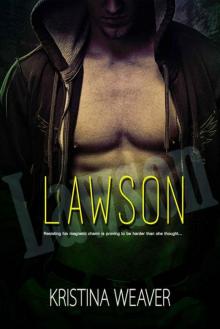 LAWSON (A Standalone Billionaire Romance Novel)
LAWSON (A Standalone Billionaire Romance Novel) MINE 3
MINE 3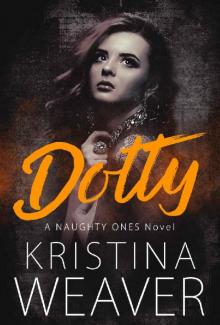 DOTTY (The Naughty Ones Book 3)
DOTTY (The Naughty Ones Book 3) JACE (Lane Brothers Book 3)
JACE (Lane Brothers Book 3)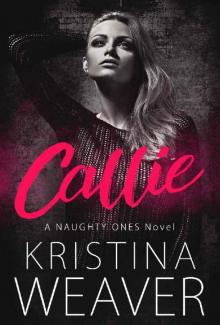 CALLIE (The Naughty Ones Book 1)
CALLIE (The Naughty Ones Book 1)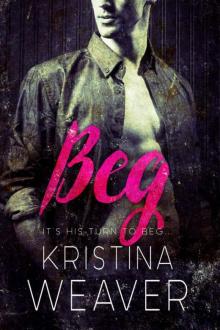 BEG 1
BEG 1 MINE 2
MINE 2 BAD APPLE: The Complete Series (Parts 1-5)
BAD APPLE: The Complete Series (Parts 1-5)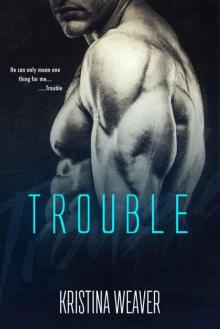 TROUBLE 1
TROUBLE 1 WYLDER
WYLDER JARED (Lane Brothers Book 4)
JARED (Lane Brothers Book 4) BIG SHOT LOVE: 5 Billionaire Romance Books Bundle
BIG SHOT LOVE: 5 Billionaire Romance Books Bundle LUCI (The Naughty Ones Book 2)
LUCI (The Naughty Ones Book 2)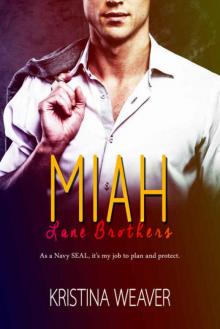 Miah (Lane Brothers #2)
Miah (Lane Brothers #2)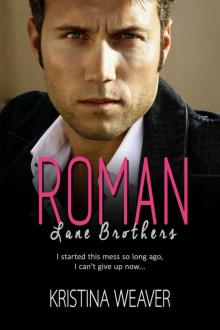 ROMAN (Lane Brothers Book 5)
ROMAN (Lane Brothers Book 5)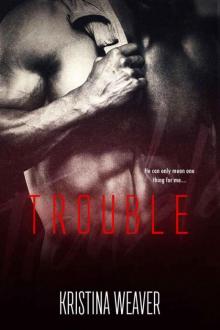 TROUBLE 3
TROUBLE 3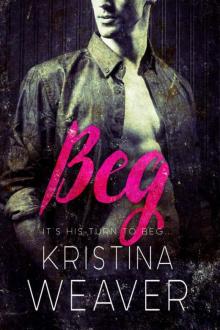 BEG (A Standalone Billionaire Romance Novel)
BEG (A Standalone Billionaire Romance Novel) MINE 1
MINE 1 Wyatt (Lane Brothers #1)
Wyatt (Lane Brothers #1) CHASED (A Standalone Billionaire Romance Novel)
CHASED (A Standalone Billionaire Romance Novel) THE WATCHERS: 6 Military Romance Bundle
THE WATCHERS: 6 Military Romance Bundle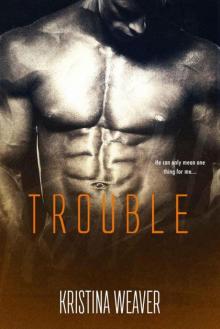 TROUBLE 2
TROUBLE 2 THE NAUGHTY ONES: The Complete 5-Books Series
THE NAUGHTY ONES: The Complete 5-Books Series